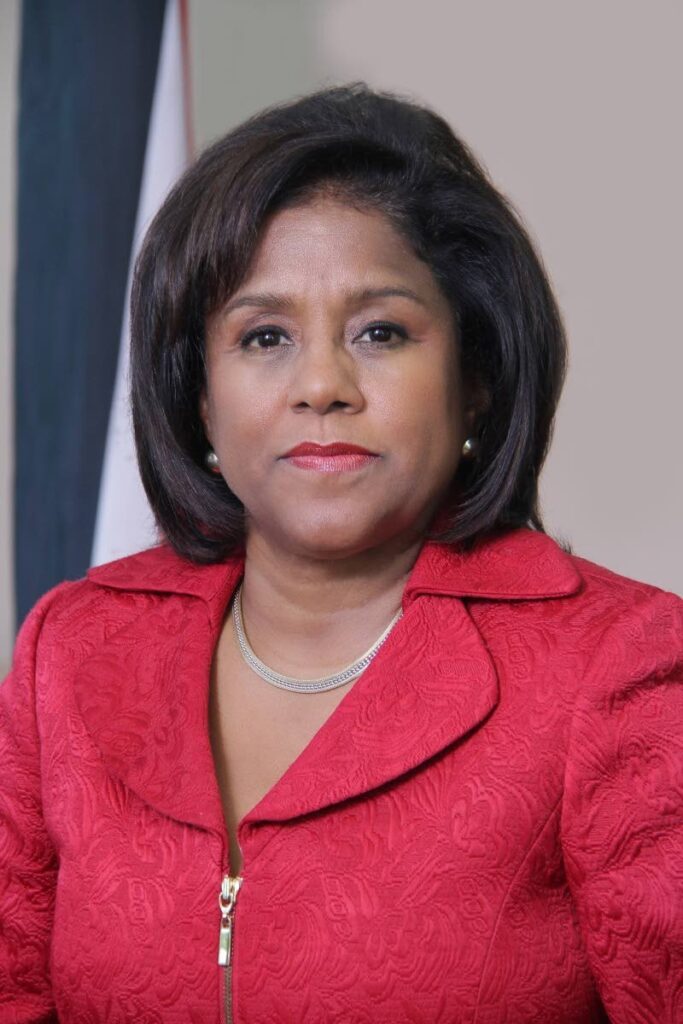Business
Ryan Hamilton-Davis

Photo courtesy MTI – Ministry of Trade
Ten businesses from the third cohort of the Scale Up TT programme, geared at developing and growing TT businesses, celebrated completing the course at a graduation ceremony at the Hyatt Regency in Port of Spain last week.
Three business owners spoke highly of the programme, saying the insights and lessons they learned helped their businesses to grow to the next level.
Marc Anthony Lloyd, director of operations at Fresh Juice for Life, described the experience he had during the ScaleUp TT programme as “nothing short of transformative.
“From the moment I entered the programme I was welcomed into a community of like-minded entrepreneurs and experienced a wealth of resources and networking opportunities that have been instrumental,” he said. “The invaluable insights guidance and unwavering support had not only helped me to scale up my business but also empowered me to capitalise on new growth opportunities that I may not have had found myself.”
Nicola Harvey Mitchell, success coach at Nu Wave Automotive, said the main lesson she learned during the programme was discipline.
“We learned discipline in growth,” she said. “A culture of discipline is not just a principle of business but it is a principle of greatness.”
“The programme reminded us that particular thing of being disciplined even as we grow. We learned lessons in time management – we need to start on time, go on breaks on time and end on time. We learned discipline of crafting and internalising our company’s purpose. We learned discipline in aligning that purpose with our goals, strategies and actions. We learned the discipline of understanding your internal capacity and all the red flags that may slow your growth.”
Managing director of printing, packaging, coding and labelling company Insepra Ltd Derek Lawrence said his team benefited as the programme constantly challenged them to grow not only on a business level but on a personal level.
He said the programme encouraged them to work on their strengths and weaknesses, which changed the mindset of the team overall.
“One aspect we particularly appreciated was the opportunity to share growth stories at the beginning of each workshop. It enabled us to reflect on our achievements, where we fell short, and implement strategies discussed during the programme to make necessary changes.
“We have since implemented this as part of our monthly staff briefings. It has created a level of engagement with staff where we get an appreciation for the achievements made by the team,” he said.
Trade minister: 7 out of 10 graduates in service sector
Minister of Trade and Industry Paula Gopee-Scoon noted that seven out of the ten businesses that graduated from the programme came from the services sector.
They came from several parts of the non-energy sector, including the manufacturing, medical services, engineering, business and professional services and digital transformation sectors.
“(This) is not surprising, given that this sector comprises 60 per cent of our national GDP,” she said.
She repeated statistics from the Caricom secretariat, which said from 2012-2021 the service sector grew by US$4 billion in the region. From 2021-2022, it was responsible for two-thirds of the region’s total output.
She also revealed statistics which said the sector is predicted to achieve full recovery and grow an estimated five per cent in 2024.
“Therein lie opportunities for firms, such as yours, to expand beyond TT,” she told the graduating cohort. “High-growth firms or ‘Scale Ups’ are the generators of jobs, taxes and wealth according to the World Economic Forum (WEF). It is therefore important that targeted programmes and initiatives be implemented to harness their contribution to the TT economy.”
Gopee-Scoon suggested businesses look to go beyond the TT market now that they have scaled up.
“While we are the largest and most dynamic English-speaking economy in the Caribbean, we must be cognisant that our domestic market is still small, and expanding to foreign markets is an imperative for sustained growth,” she said.
“To expand your reach you must know what opportunities exist, the requirements for exporting, the tariff and non-tariff barriers and the standards for entering overseas markets. If you are into services, you must understand the various domestic regulations in your market of choice.”
